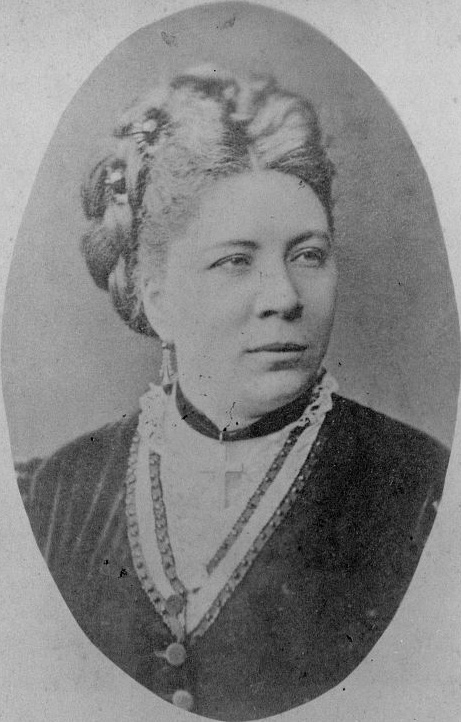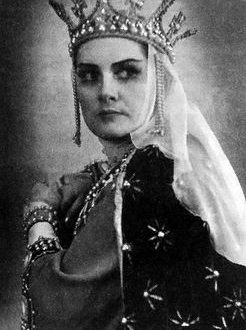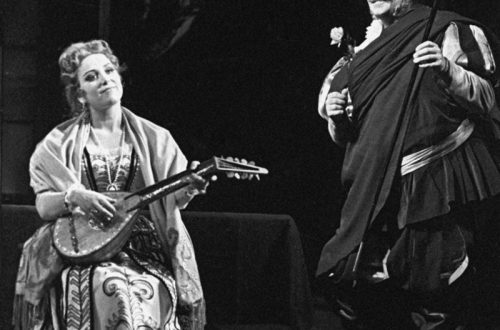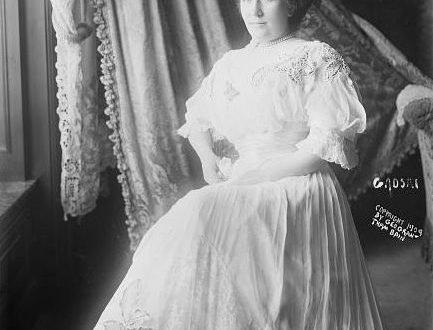
Désirée Artôt |
Desiree Artot
Artaud, a French singer of Belgian origin, possessed a voice of rare range, she performed the parts of mezzo-soprano, dramatic and lyric-coloratura soprano.
Desiree Artaud de Padilla (maiden name Marguerite Josephine Montaney) was born on July 21, 1835. Since 1855 she studied with M. Odran. Later she went to an excellent school under the guidance of Pauline Viardo-Garcia. At that time she also performed in concerts on the stages of Belgium, Holland and England.
In 1858, the young singer made her debut at the Paris Grand Opera (Meyerbeer’s The Prophet) and soon took the position of prima donna. Then Artaud performed in different countries both on the stage and on the concert stage.
In 1859 she successfully sang with the Lorini Opera Company in Italy. In 1859-1860 she toured London as a concert singer. Later, in 1863, 1864 and 1866, she performed in “foggy Albion” as an opera singer.
In Russia, Artaud performed with great success in performances of the Moscow Italian Opera (1868-1870, 1875/76) and St. Petersburg (1871/72, 1876/77).
Artaud came to Russia having already won wide European fame. The wide range of her voice allowed her to cope well with soprano and mezzo-soprano parts. She combined coloratura brilliance with the expressive drama of her singing. Donna Anna in Mozart’s Don Giovanni, Rosina in Rossini’s The Barber of Seville, Violetta, Gilda, Aida in Verdi’s operas, Valentina in Meyerbeer’s Les Huguenots, Marguerite in Gounod’s Faust – she performed all these roles with penetrating musicality and skill. . No wonder her art attracted such strict connoisseurs as Berlioz and Meyerbeer.
In 1868, Artaud first appeared on the Moscow stage, where she became the decoration of the Italian opera company Merelli. Here is the story of the famous music critic G. Laroche: “The troupe was composed of artists of the fifth and sixth category, without voices, without talents; the only but striking exception was a thirty-year-old girl with an ugly and passionate face, who had just begun to gain weight and then quickly grew old both in appearance and voice. Before her arrival in Moscow, two cities – Berlin and Warsaw – fell in love with her extremely. But nowhere, it seems, did she arouse such loud and friendly enthusiasm as in Moscow. For many of the then musical youth, especially for Pyotr Ilyich, Artaud was, as it were, the personification of dramatic singing, the goddess of opera, combining in one herself the gifts usually scattered in opposite natures. Intoned with impeccable piano and possessed of excellent vocalization, she dazzled the crowd with fireworks of trills and scales, and it must be confessed that a significant part of her repertoire was devoted to this virtuoso side of art; but the extraordinary vitality and poetry of expression seemed to raise the sometimes base music to the highest artistic level. The young, slightly harsh timbre of her voice breathed indescribable charm, sounded negligent and passionate. Artaud was ugly; but he would be greatly mistaken who assumes that with great difficulty, through the secrets of art and toilet, she was forced to fight against the unfavorable impression made by her appearance. She conquered hearts and muddied the mind along with the impeccable beauty. The amazing whiteness of the body, the rare plasticity and grace of movements, the beauty of the arms and neck were not the only weapon: for all the irregularity of the face, it had an amazing charm.
So, among the most zealous admirers of the French prima donna was Tchaikovsky. “I feel the need,” he confesses to Brother Modest, “to pour out my impressions into your artistic heart. If you knew what kind of singer and actress Artaud. Never before have I been so impressed by an artist as this time. And how sorry I am that you cannot hear and see her! How would you admire her gestures and grace of movements and postures!
The conversation even turned to marriage. Tchaikovsky wrote to his father: “I met Artaud in the spring, but I met her only once, after her benefit at dinner. After her return this autumn, I did not visit her at all for a month. We met by chance at the same musical evening; she expressed surprise that I did not visit her, I promised to visit her, but I would not have kept my promise (because of my inability to make new acquaintances) if Anton Rubinstein, who was passing through Moscow, had not dragged me to her. Since then, almost every day, I began to receive letters of invitation from her, and little by little I got used to visiting her every day. We soon kindled very tender feelings for each other, and mutual confessions immediately followed. It goes without saying that here the question arose of a legal marriage, which both of us very much desire and which should take place in the summer, if nothing interferes with it. But that’s the strength, that there are some obstacles. Firstly, her mother, who is constantly with her and has a significant influence on her daughter, opposes the marriage, finding that I am too young for her daughter, and, in all probability, fearing that I will force her to live in Russia. Secondly, my friends, especially N. Rubinstein, use the most energetic efforts so that I do not fulfill the proposed marriage plan. They say that, having become the husband of a famous singer, I will play the very miserable role of my wife’s husband, i.e. I will follow her to all corners of Europe, live at her expense, I will lose the habit and will not be able to work … It would be possible to prevent the possibility of this misfortune by her decision to leave the stage and live in Russia – but she says that, despite all her love to me, she cannot decide to leave the stage to which she is accustomed and which brings her fame and money … Just as she cannot decide to leave the stage, I, for my part, hesitate to sacrifice my future for her, for there is no doubt that I will be deprived of the opportunity to go forward on my path if I blindly follow it.
From the standpoint of today, it does not seem surprising that, having left Russia, Artaud soon married the Spanish baritone singer M. Padilla y Ramos.
In the 70s, together with her husband, she successfully sang in opera in Italy and other European countries. Artaud lived in Berlin between 1884 and 1889 and later in Paris. Since 1889, leaving the stage, she taught, among the students – S. Arnoldson.
Tchaikovsky retained friendly feelings for the artist. Twenty years after parting, at the request of Artaud, he created six romances based on poems by French poets.
Artaud wrote: “At last, my friend, your romances are in my hands. Sure, 4, 5, and 6 are great, but the first one is charming and delightfully fresh. “Disappointment” I also like extremely – in a word, I am in love with your new offspring and I am proud that you created them, thinking of me.
Having met the singer in Berlin, the composer wrote: “I spent an evening with Ms. Artaud with Grieg, the memory of which will never be erased from my memory. Both the personality and the art of this singer are as irresistibly charming as ever.”
Artaud died on April 3, 1907 in Berlin.





